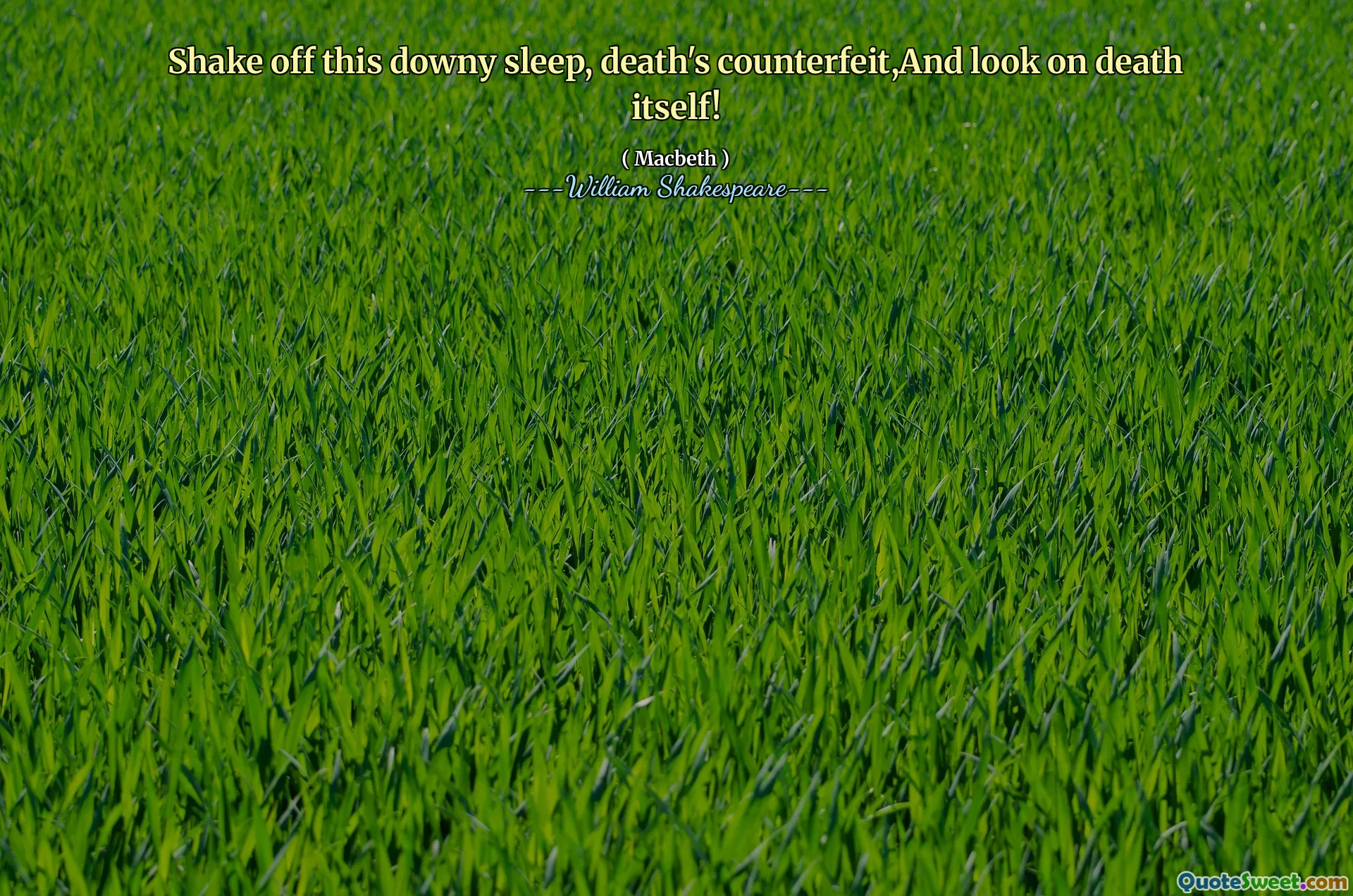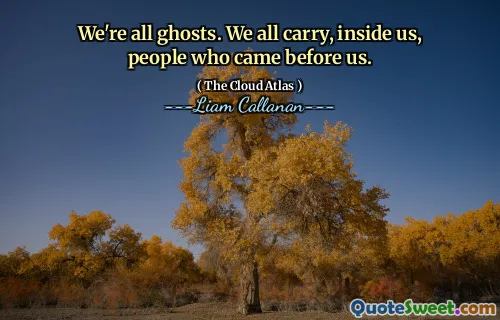
Shake off this downy sleep, death's counterfeit,And look on death itself!
This excerpt from William Shakespeare's 'Macbeth' vividly explores themes of confrontation with mortality and the human tendency to evade the inevitable. The phrase "Shake off this downy sleep" urges a wakefulness, a vigorous awakening from metaphorical or literal slumber, symbolizing an awakening to the reality of death. Shakespeare describes death as "death's counterfeit," casting it as a false or superficial imitation of life, perhaps suggesting that death is not as final or terrifying as it might seem, but rather a temporary 'performance' or a transition.
The encouragement "And look on death itself!" challenges the audience—both Macbeth and the spectators—to face death directly, without disguise or denial. In the play, Macbeth grapples with his fear of mortality, guilt, and the meaning of his life and actions. In a broader sense, this quote offers a philosophical reflection on human vulnerability and the importance of confronting our fears head-on.
The call to "shake off" complacency underscores a vital message: avoiding or denying death only prolongs our suffering and prevents us from understanding the true nature of life and mortality. It invites a form of existential bravery, urging us to accept death as an inherent part of the human condition. Philosophically, this perspective encourages embracing mortality as a means to live more authentically, appreciating each moment, and finding courage in acknowledgment.
In today's context, the message still resonates profoundly. Whether facing personal losses, fears of mortality, or the inevitable end of life, the quote advocates for confronting our fears directly, shedding illusions, and seeing death as a natural, integral aspect of existence. Such acceptance can foster a deeper appreciation for life, prompt introspection, and inspire a fearless approach to our finite time on earth.






